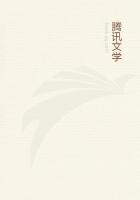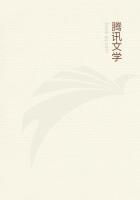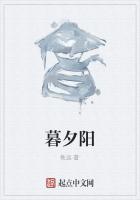It would be good to remember that Polish independence as embodied in a Polish State is not the gift of any kind of journalism, neither is it the outcome even of some particularly benevolent idea or of any clearly apprehended sense of guilt. I am speaking of what I know when I say that the original and only formative idea in Europe was the idea of delivering the fate of Poland into the hands of Russian Tsarism. And, let us remember, it was assumed then to be a victorious Tsarism at that. It was an idea talked of openly, entertained seriously, presented as a benevolence, with a curious blindness to its grotesque and ghastly character. It was the idea of delivering the victim with a kindly smile and the confident assurance that "it would be all right" to a perfectly unrepentant assassin, who, after sawing furiously at its throat for a hundred years or so, was expected to make friends suddenly and kiss it on both cheeks in the mystic Russian fashion. It was a singularly nightmarish combination of international polity, and no whisper of any other would have been officially tolerated. Indeed, I do not think in the whole extent of Western Europe there was anybody who had the slightest mind to whisper on that subject. Those were the days of the dark future, when Benckendorf put down his name on the Committee for the Relief of Polish Populations driven by the Russian armies into the heart of Russia, when the Grand Duke Nicholas (the gentleman who advocated a St. Bartholomew's Night for the suppression of Russian liberalism) was displaying his "divine"(I have read the very word in an English newspaper of standing)strategy in the great retreat, where Mr. Iswolsky carried himself haughtily on the banks of the Seine; and it was beginning to dawn upon certain people there that he was a greater nuisance even than the Polish question.
But there is no use in talking about all that. Some clever person has said that it is always the unexpected that happens, and on a calm and dispassionate survey the world does appear mainly to one as a scene of miracles. Out of Germany's strength, in whose purpose so many people refused to believe, came Poland's opportunity, in which nobody could have been expected to believe.
Out of Russia's collapse emerged that forbidden thing, the Polish independence, not as a vengeful figure, the retributive shadow of the crime, but as something much more solid and more difficult to get rid of--a political necessity and a moral solution. Directly it appeared its practical usefulness became undeniable, and also the fact that, for better or worse, it was impossible to get rid of it again except by the unthinkable way of another carving, of another partition, of another crime.
Therein lie the strength and the future of the thing so strictly forbidden no farther back than two years or so, of the Polish independence expressed in a Polish State. It comes into the world morally free, not in virtue of its sufferings, but in virtue of its miraculous rebirth and of its ancient claim for services rendered to Europe. Not a single one of the combatants of all the fronts of the world has died consciously for Poland's *******. That supreme opportunity was denied even to Poland's own children. And it is just as well! Providence in its inscrutable way had been merciful, for had it been otherwise the load of gratitude would have been too great, the sense of obligation too crushing, the joy of deliverance too fearful for mortals, common sinners with the rest of mankind before the eye of the Most High. Those who died East and West, leaving so much anguish and so much pride behind them, died neither for the creation of States, nor for empty words, nor yet for the salvation of general ideas. They died neither for democracy, nor leagues, nor systems, nor yet for abstract justice, which is an unfathomable mystery. They died for something too deep for words, too mighty for the common standards by which reason measures the advantages of life and death, too sacred for the vain discourses that come and go on the lips of dreamers, fanatics, humanitarians, and statesmen. They died . . . .
Poland's independence springs up from that great immolation, but Poland's loyalty to Europe will not be rooted in anything so trenchant and burdensome as the sense of an immeasurable indebtedness, of that gratitude which in a worldly sense is sometimes called eternal, but which lies always at the mercy of weariness and is fatally condemned by the instability of human sentiments to end in negation. Polish loyalty will be rooted in something much more solid and enduring, in something that could never be called eternal, but which is, in fact, life-enduring. It will be rooted in the national temperament, which is about the only thing on earth that can be trusted. Men may deteriorate, they may improve too, but they don't change. Misfortune is a hard school which may either mature or spoil a national character, but it may be reasonably advanced that the long course of adversity of the most cruel kind has not injured the fundamental characteristics of the Polish nation which has proved its vitality against the most demoralising odds. The various phases of the Polish sense of self-preservation struggling amongst the menacing forces and the no less threatening chaos of the neighbouring Powers should be judged impartially. I suggest impartiality and not indulgence simply because, when appraising the Polish question, it is not necessary to invoke the softer emotions. A little calm reflection on the past and the present is all that is necessary on the part of the Western world to judge the movements of a community whose ideals are the same, but whose situation is unique. This situation was brought vividly home to me in the course of an argument more than eighteen months ago. "Don't forget," I was told, "that Poland has got to live in contact with Germany and Russia to the end of time.















